Journal Boards
Owner
Publishing Manager
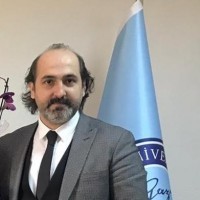
Editor in Chief
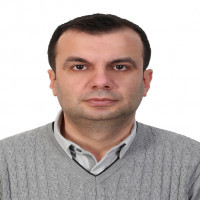
Managing Editors
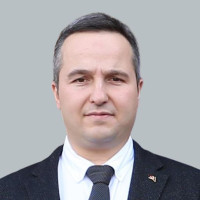
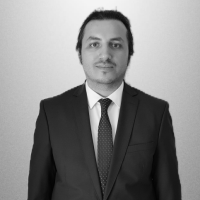
Editors
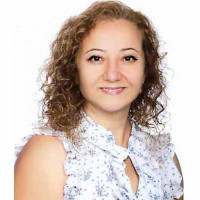

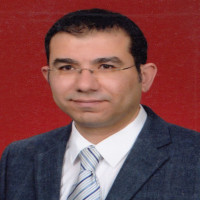
He is an Professor Doctor at Kütahya Dumlupınar University, Chemistry Department, Kütahya, Turkey. He got his BS degree from Gazi University, Ankara, Turkey in 2000. He received his MSc degree from Dumlupınar University in 2003. He received his PhD degree from Ankara University in 2010. His research interests include electrochemistry, electrochemical sensors, conducting polymers, corrosion, and nanotechnology.

 Web
Web

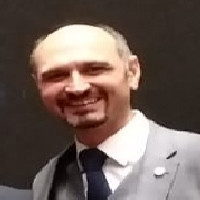
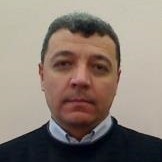
 Web
Web


Kemal Akyol received B.Sc. degree in the Electronic and Computer Systems Education Department from Gazi University, Ankara/ Türkiye, and also in the Computer Engineering Department from Ondokuz Mayıs University, Samsun/Türkiye. He received his M.Sc. and Ph.D. degrees in Computer Engineering from the Natural and Applied Sciences department at Karabuk University, Karabuk/Türkiye. His main areas of interest include data mining, machine learning, image processing, decision support systems, and expert systems.
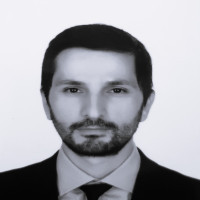
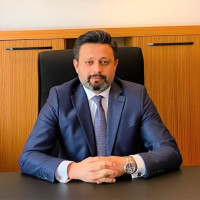
Erdal Irmak, Senior Member of IEEE, earned his BSc degree in Electrical Education from the Faculty of Technical Education at Gazi University, Türkiye, in 1997. Subsequently, he pursued his MSc and PhD degrees in the same field at the Gazi University Graduate School of Natural and Applied Sciences, in 2001 and 2007, respectively. His expertise covers power system operation and control, voltage and frequency stability, the integration of renewables into power systems, the design of virtual and remote labs, and the cybersecurity of critical infrastructure. He has authored or co-authored over 130 research papers, most of which are indexed in WoS. Dr. Irmak has led and contributed to various projects, spanning from power system stability, microgrid development and real-time pricing optimization in smart grids to solar cell technology. He has played key roles in IEEE-supported conferences including GPECOM, ICRERA, and ICSMARTGRID. Currently, he is full-time Professor in Electrical and Electronics Engineering Department of Gazi University.
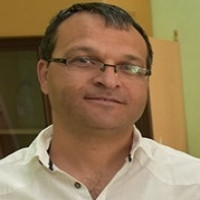
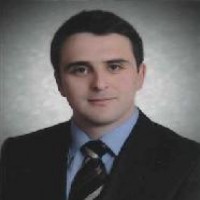
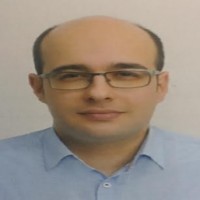


I am a Professor of the Industrial Engineering Department at the University of Gaziantep, and Branch Chief of the Logistics Association of Türkiye (LODER). Before joining here, I was at Northeastern University to conduct postdoctoral studies about sustainable production and distribution planning.
I have a diverse background with degrees and experience in environmentally conscious logistics and supply chain management, AI implementations, optimization, and management science. With this multidisciplinary background, I have helped practitioners and policymakers develop decision-making skills and tools to create and manage efficient, resilient, and sustainable supply chains. I have developed and led multidisciplinary teams working on a range of projects related to digital, green, and lean transformation (AI-driven tools and methods) pairing intuition with Al tools, and sustainability.
I am frequently consulted by several businesses, from small and medium-sized companies to ISO 1000 corporations. To date, I have successfully managed over 20 industry and academic projects to completion for which I have received numerous awards from professional associations, research organizations, and government agencies.
I work with university executive teams and industry practitioners on how to translate industry challenges into educational and research opportunities. Through these initiatives, I have secured over $2m in funding from governments and industries.
I was awarded the Science Academy Young Scientist Award in 2016 and the Gaziantep University Science Award in 2017. I have over 100 SCI, and SSCI articles and over 5000 citations. According to the latest research conducted by Stanford University, I am one of the top 2 percent of scientists in the world, I am a TUBITAK and TUSSIDE-approved Model Factory Lean Production and DDX Digital Transformation consultant.
Limonist Meta Technology, based in London, offers artificial intelligence-based digital solutions to different sectors such as construction, carpet, garment, cosmetics, and health.
#logistics #supplychainmanagement #warehousemanagement #stockmanagement #leanmanufacturing #skincaresoftware #VRinconstruction
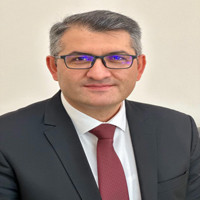
Dr. Volkan Kilicli is an Associate Professor at the Department of Metallurgical and Materials Engineering at Gazi University, Ankara, Turkey. He received his B.Sc., M.Sc., and Ph.D. degrees in the same department in 2001, 2004, and 2010, respectively. He worked at the Department of Materials Science&Engineering University of Wisconsin-Milwaukee (UWM) for one year as a postdoctoral fellow. His areas of interest are materials characterization, semi-solid processing of aluminum alloys, self-healing metallic materials/metal matrix composites, and heat treatments of cast irons and steels.
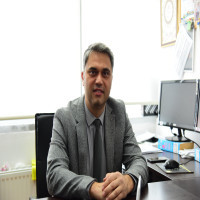
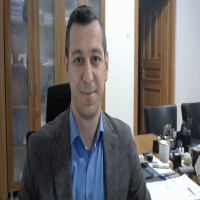
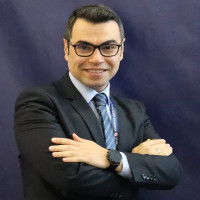

 Web
Web
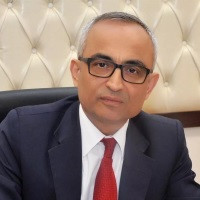
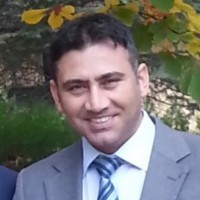

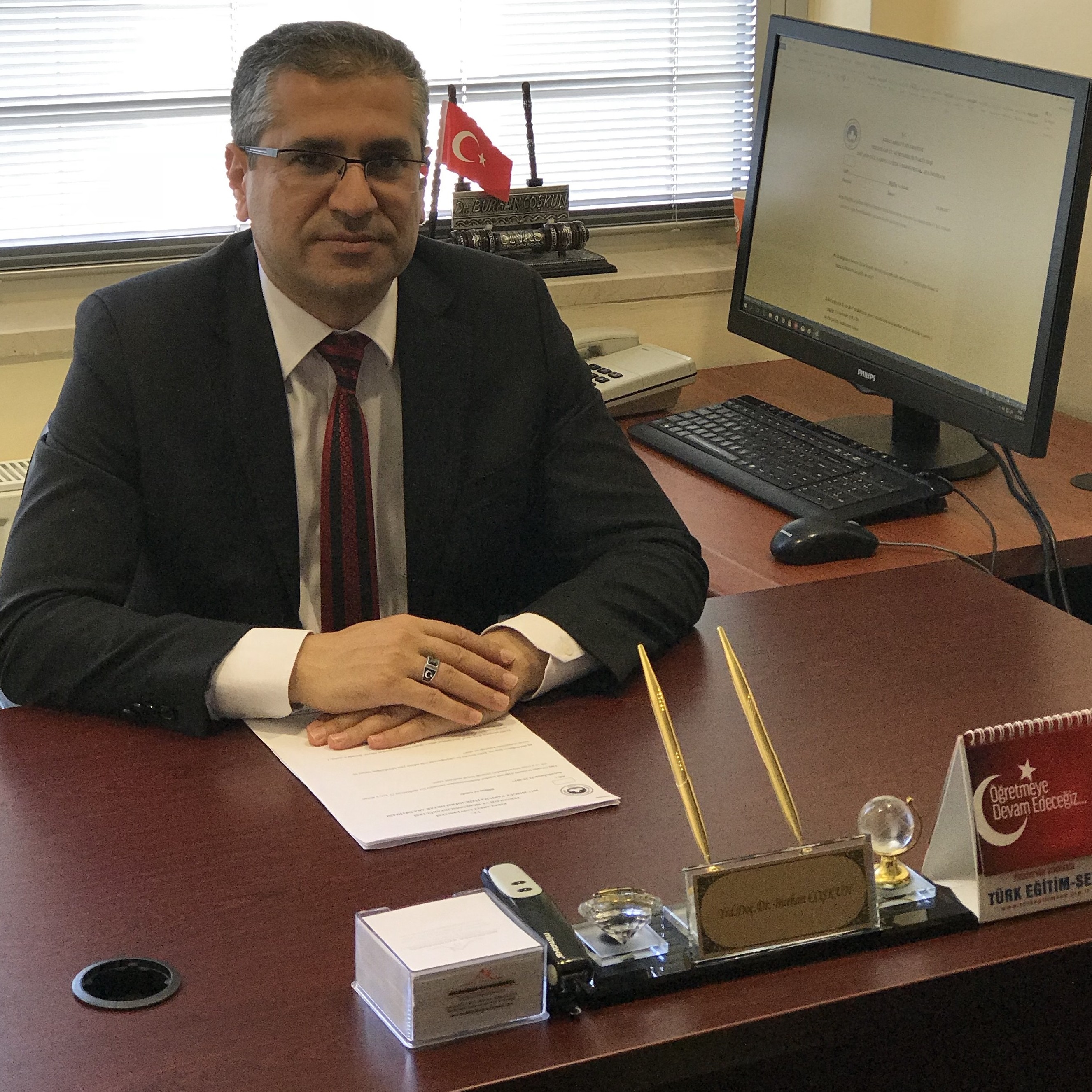
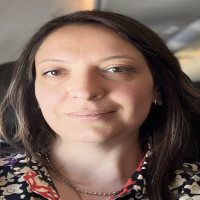

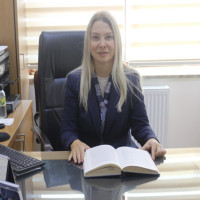

Dr. Derya Güleç Özer, 2004 yılında ODTÜ’den lisans, 2007 yılında Gazi Üniversitesi’nden yüksek lisans ve 2014 yılında İTÜ Mimari Bilişim Bölümü’nden doktora derecelerini aldı. 2015 yılında MIT, Boston’da doktora sonrası çalışmalarına devam etti ve burada dijital miras araştırmaları yürüttü. Araştırma ilgi alanları arasında mimarlık eğitimi, bilgisayar destekli tasarım, dijital miras çalışmaları, robotik ve sürdürülebilirlik bulunmaktadır. Çok sayıda mimarlık yarışmasından ödüller kazanan Dr. Özer, hâlâ İstanbul Teknik Üniversitesi Mimari Bilişim Programı'nda öğretim vermektedir.
Technical Assistants
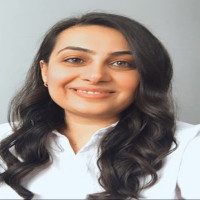
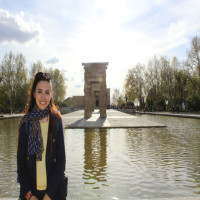

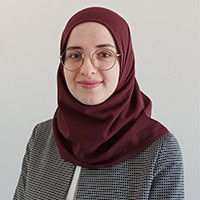
Editorial Advisory Board
Prof. Imran Ali, Ph.D., FRSC, C Chem, London (UK), Highly Cited Researcher, Clarivate, USA and with 10 Global ranks in Analytical Chemistry (Chromatography), as per the Stanford University, USA (Global list of top 2% scientists); is a world-recognized academician and researcher. He completed his Ph.D. at the Indian Institute of Technology Roorkee, Roorkee, India. Prof. Ali is known globally due to his great contribution to pharmaceutical analysis by chromatography and capillary electrophoresis, the development of anticancer drugs, nanotechnology for water treatment, and water splitting for hydrogen green fuel generation. He has published more than 500 papers in reputed journals including papers in Nature and Chemical Reviews of more than 72 impact factors. He has also written six books published by Marcel Dekker, Inc., USA; Taylor & Francis, USA; John Wiley & Sons, USA; John Wiley & Sons, UK; Elsevier, The Netherlands, and Springer, Germany. His total citation is 44,200 with an h-index of 114 and i10-index of 369. He is a member of various scientific societies globally. He has been co-chair of a conference on the application of graphene, chaired many conference sessions, and delivered several keynote lectures. He is a widely traveled person enjoying various visiting Professor/Consultant positions in many Universities around the world.
Jamal Khatib, BEng, MEng(Sc), PhD, CEng, EUR ING, FICE, FHEA, PG.Cert. Ed, PG.Cert. PjtMgt, Cert. EnvMgt, MIEI(till 2015), M-EPSRC, MEPC, MIRED, SMUACSEE, MOIA, is presently Professor of Civil Engineering, Faculty Engineering at Beirut Arab University (BAU)-Lebanon and Emeritus Professor of the University of Wolverhampton (UoW)–UK. His academic career began as a Research Student/Assistant/Fellow, at the University of Aberdeen. In 1994 he moved to take another Research Fellow post at the University of South Wales (USW) until 1997. He then took a permanent position as a L/Senior Lecturer (Assistant Prof) in Civil Engineering at Sheffield Hallam University (SHU). During that time and due to research collaboration with IMUST-China, he was awarded the title of Honorary Professor in 2001. After 9 years at SHU, he moved to the UoW as a Reader (Associate Prof) in Civil Engineering and became a Professor in July 2012. He achieved the Chartered Engineer status of the Institution of Civil Engineer (ICE) in 2010, the European Engineer status (EUR ING) in 2015 and the Fellowship status of the ICE in 2016. In July 2021, he became Member of EPSRC Peer Review College. Areas of research specialism include a number of sustainable construction materials themes: a) use of waste in the production of construction materials, b) novel construction materials (e.g. metakaolin), c) concrete subjected to harsh environments, d) lightweight and self-compacting concrete and e) behaviour of structural materials. Prof Khatib was one of the early UK researchers who conducted research on metakaolin as partial substitution of cement and his publications in this area have been extensively cited. The products of his extensive research activities have been comprehensively disseminated through: over 500 refereed academic journal & conference papers, text books, abstracts, research seminars and workshops; articles and features. According to the ISI Web of Science, Scopus & Google Scholar Prof Khatib has an H-index of 30, 33 and 46 respectively. In October 2020, 2021, 2022 and 2023, Stanford University classified Prof Khatib as top 2% (actually top 0.25%) researchers in the world in the building and construction field (https://data.mendeley.com/datasets/btchxktzyw/2). Microsoft Academic classified Prof Khatib as one of the top authors in cement (G-Index:18). According to Google scholar Prof Khatib has over 10,000 citations and many of his papers were ranked as top 25 articles. He acts as a reviewer to over 3000 academic journals, book publishers & others. He sits on the technical committees of over 100 international conferences. Publons (Web of Science) classified Prof Khatib as top 1% reviewers globally. He is an Editorial Board member of many academic Journals including the Editor-in-Chief and Associate Editor roles. Prof Khatib was a submitting member for the RAE/REF 1996/2001/2008/2014.
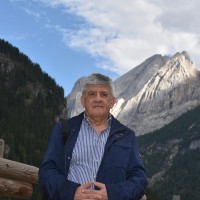

Prof. (Dr.) K. Palanikumar is Professor and head of the Institution at Sri Sai Ram Institute of Technology, Chennai, Tamil Nadu, India. He is involved in Teaching, Research, Development and Innovations in the field of higher technical education. He is a world top 2% researcher on materials compiled by Stanford University. He has published more than 250 papers in reputed journals having Google Scholar h-index of 65 and a citation of more than 15000. He has received many funded projects for the institution. He has received Best Researcher Award from ISTE and World Top 1% Reviewer Award from PUBLONS by Web of Science. He is the recipient of AICTE-Visvesvaraya Best Teacher Award from Ministry of Education, Govt. of India. He has implemented renewable energy sources and drip irrigation process through Swatch Bharath. He has guided his students to participate in various go green initiatives, National and International competitions. He executed the SDG goals with academics curricular and co-curricular activities. His field of interest are: Composite materials; machining; application of AI tools; machine learning and sustainability.
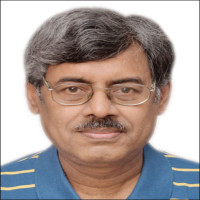
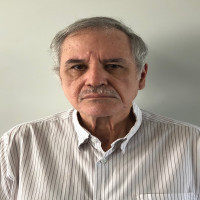
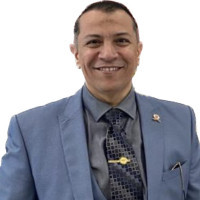
Abdel-Salam G. Abdel-Salam is an associate professor of statistics at the College of Arts and Sciences, Qatar University. He is also a chartered statistician from the Royal Statistical Society (RSS) in the UK and certified as a professional statistician by the American Statistical Association(ASA) in the USA. Dr. Abdel-Salam holds BS and MS (2004) degrees in Statistics from Cairo University and MS (2006), Ph.D. (2009) degrees in Statistics from Virginia Polytechnic Institute and State University (Virginia Tech, USA) and MBA (2023) from Qatar University. He taught at the Faculty of Economics and Political Science (Cairo University), Virginia Tech, and Oklahoma State University. He also worked at JPMorgan Chase Co. as Assistant Vice President in Mortgage Banking and Business Banking Risk Management Sectors. He has published several research papers and delivered numerous talks and workshops nationally and internationally.
Dr. Abdel-Salam has been awarded a couple of the highest prestige awards, such as Teaching Excellence from Virginia Tech, Academic Excellence Award, Freud International Award, and Mary G. Natrella Scholarship from the American Statistical Association (ASA) and American Society for Quality (ASQ), for outstanding graduate study of the theory and application of Quality Control, Quality Assurance, Quality Improvement, and Total Quality Management. In addition, He was awarded the Cairo University Award for International Publication in 2013 and Qatar University's Outstanding Faculty Service Award in 2018. His research interests include all aspects of modeling Educational, Psychological, Social, and industrial phenomena and Economic Capital Models, including statistical process control, multivariate analysis, Regression Analysis, Exploratory and Robust Data Analysis, mixed models, Nonparametric and Semiparametric profile monitoring, Health-related monitoring, and prospective public health surveillance.
Dr. Hussein received BSc, MSc and PhD degrees in Production and Manufacturing Engineering from Helwan University, Cairo/Egypt. From 2014, Dr. Hussein serving at the same Faculty. He has also served in the tool design department of many companies. His research interests include computer-aided sheet metal die design, AI applications to sheet metal forming, CAD/CAM, AutoCAD application and customization, and CAPP. He has completed many research projects in the area of design and manufacturing sanctioned by various funding agencies. He is a member of the Egyptian Syndicate of Professional Engineers and of the Egyptian Mechanical Engineers Associations. Dr. Hussein has published one international book (Springer Verlag), Many book chapters, and more than 30 impact factor papers in several areas of manufacturing engineering such as CAD/ES in Die Design, Machining of Hard Materials, additive manufacturing. Dr. Hussein has supervised several theses at undergraduate and graduate level.
Zuzanna Żołek-Tryznowska is an associate professor with a Ph.D. in Chemistry Science at the Faculty of Chemistry, Warsaw University of Technology. She is Associate Dean for Students Affairs at the Faculty of Mechanical and Industrial Engineering, Warsaw University of Technology. She is responsible for leadership of the Department of Printing Technologies research areas and the Papermaking and Printing BS and MS academic programs. Her research includes the surface chemistry of plastic films, the interaction between printing inks and printing surfaces, and the development and properties of starch-based materials as novel packaging materials.
Magdolna Pál is an Associate Professor at the Department of Graphic Engineering and Design, Faculty of Technical Sciences, University of Novi Sad. Her doctoral dissertation focused on the topic: “Development of a Model for Objective Control of Surface Damage in Coated Papers During the Folding Process.”
She is a co-author of over 110 scientific and professional papers, including 10 published in journals with an impact factor, two auxiliary textbooks, and a book chapter published by a renowned international publisher. She serves as a reviewer for several international journals, both with and without impact factors, and has mentored numerous bachelor’s and master’s theses.
Currently, she is involved in the implementation of a national project funded by the Ministry of Education, Science, and Technological Development of the Republic of Serbia, as well as two European CEEPUS projects.
Throughout her academic career, she has participated in teaching courses such as Finishing Processes in Graphic Engineering, Graphic Packaging, Graphic Processes, Printing Techniques, and Computer Image Processing. Currently, she is the course instructor for Finishing Processes in Graphic Engineering and Computer Image Processing, as well as for doctoral-level courses.
She actively promotes science through participation in events such as the Researcher’s Night and the Science Festival. Through Erasmus and CEEPUS mobility projects, she has taught at several European universities. Additionally, within the COST FP1003 and FP1405 projects, she has participated in workshops, working meetings, and other events.
In September 2008, 2012, and 2015, she obtained and renewed her certification as a trainer for the EngView Package Design software (EngView System Certification Seminars, 2008, 2012, and 2015, Sofia, Bulgaria).
Since 2008, she has been a member of the Hungarian Technical Association for Paper and Printing Industry.
Professor and researcher at the University of Granada with different affiliations at the Department of Urban and Spatial Planning since 2002. In recent years, his research has focused on the development of decision support methodologies and tools, based on databases and the use of advanced knowledge generation techniques (e.g. machine learning, artificial neural networks, semantic mapping models (Self Organizing Maps -SOM-), predictive models, etc.), in order to improve the quality of urban and rural life, the sustainability and resilience of urban settlements and their inhabitants, as well as the reduction of inequality and social vulnerability.
The methodologies developed for the generation of knowledge through the interpretation of surveys and spatial and territorial analysis, using Machine Learning and Artificial Intelligence, previously validated by academia in numerous international Conferences (e.g. CAEPIA Conference on Artificial Intelligence, etc.), and published in several scientific publications in high impact journals and indexed in JCR (e.g. European Planning Studies, Entropy, Journal of Maps, Int. J. Env.Res.Public Health, ISPRS Int.Journal of Geo-Information, Sustainability, Applied Sciences, EURE, etc.).
Recently, it has been transferring these advances and methodologies to society through research contracts for which it is responsible. In this way, he has led the academic coordination of research contracts linked to large international projects in which tools oriented towards information management and decision support with the aid of Artificial Intelligence. Among them we can highlight contracts in which the methodologies implemented allow for the extraction of evidence that facilitates international organisations to prioritise the distribution of humanitarian resources available for humanitarian emergencies. This approach can be seen in three EU-funded projects (DG ECHO/AM/BUD/2021/91013 for implementation in Central America 2021, DG ECHO/-AM/BUD/2021/91021 for implementation in Venezuela, Colombia and Peru 2021, and ECHO/-AM/BUD/2020/91013 in Central America in 2020). These methodologies have also been applied in a US government-funded project (Food For Progress FFPR Program) to improve understanding of the humanitarian crises resulting from dependence on certain crops in Central America. The US NGO CRS and the Guatemalan NGO ACH have funded research contracts aimed at improving the understanding and humanitarian response to migration phenomena in the region of Guatemala and Nicaragua, using AI. Similarly, data analysis, studies and research have been carried out for use by the UN-WFP World Food Programme. At national level, transfer activities have also been developed, e.g. with the Secretary of State for Tourism of the Spanish Government (SEGITTUR), through the financing of tourism information analysis using advanced techniques; and with the Rizoma Foundation, for the EDUSI of Malaga.
He carries out his research at the Urbanism Laboratory of the University of Granada (RNM-357), being Principal Investigator and participating researcher in several regional research projects. Among them, it is worth highlighting its presence as Principal Investigator in several projects, e.g.: (i) monitoring and prediction of humanitarian vulnerability in Sahel (2020-22, funded by AACID, Junta de Andalucía, exp. 2021UI008, 97,500€); (ii) creation of a monitoring and prediction system for FNS in Central America (2021-23, funded by AACID, Junta de Andalucía, exp. 2020UI008, 84,350€); (iii) assessment of tourist conflicts in historic centres (2021-23, funded by the Operational Programme ERDF Andalusia, exp. UMA20-FEDERJA-005, 29,049€); and (iv) evaluation of urban form in social perception (2015, funded by the Campus of Excellence BioTIC University of Granada, exp. V1-2015, 4,500€). He has also participated as a researcher in several projects including: (i) project for the study of tourism conflicts in Andalusia post-COVID19 (2021-23, funded by the Andalusian Plan for Research, Development and Innovation PAIDI, previous Excellence, Junta de Andalucía, exp. P20_01198, 40.568,06€); (ii) project studying the influence of urban attractiveness on walkability in Andalusian cities (2021-23, funded by the Consejería de Vivienda de la Junta de Andalucía, exp. UGR.20-13, 43,454.54€); and (iii) project oriented to the analysis of urban scenarios in the face of climate change (2012-16, Research Projects of Excellence funded by the Ministry of Innovation, Science and Enterprise of the Andalusian Regional Government, P12-RNM-1514, 104,725€).
Mariusz Malinowski received a Ph.D. with honors in Electrical Engineering from the Warsaw University of Technology (WUT) in 2001. He then attained a habilitation in 2012 and a professorship in 2019.
Mariusz Malinowski has been granted the following awards and distinguishments: the Siemens Prize for his PhD thesis in 2002, a Polish Minister of Science and Higher Education award for his contribution to the book Control in Power Electronic in 2003, the Siemens Prize for research achievements in 2007, the Polish Minister of Science and Higher Education awards for research achievements in 2008, the Prime Minister of Poland award for habilitation in 2013, the first prize of the Prime Minister of Poland for his research team in 2017. Moreover, he received the prestigious international IEEE IES David Irwin Early Career Award for "Outstanding research and development of modulation and control for industrial electronics converters" in 2011 (Melbourne, Australia), IEEE IES David Bimal Bose Award for Industrial Electronics Applications in Energy Systems for "Contributions in control of industrial electronics converters applications in energy systems" in 2015 (Yokohama, Japan), IEEE IES Anthony J. Hornfeck Service Award for "Outstanding and Meritorious Service to the IEEE Industrial Electronics Society" in 2021 and Power Electronics and Motion Control Istvan Nagy Award "for his outstanding contribution to control in power electronics and for continuous support of PEMC conferences" in 2022.
. Mariusz Malinowski has published over 200 journal and conference papers. He is the author of 6 patents (two implemented by industry) and co-author of 8 books. He has participated in over 25 research and industrial projects (14 in a leadership role), and he has been a reviewer and PhD commission member for numerous PhD theses in Germany, Spain, Denmark, Australia, India, Switzerland, Italy, the UK, and Poland.
Mariusz Malinowski's public service includes activities at IEEE, where he was Chair of the IEEE Poland Section and President of the IEEE Industrial Electronics Society. He has IEEE's highest Fellow status. Moreover, Mariusz Malinowski is Vice Reactor (Vice-President) for Research at WUT, a Member of the Polish Academy of Science, and a Member of the Polish Council of Research Excellence.
Mariusz Malinowski participated in the development of technologies which received many prizes, e.g., three times the recognition in the competition Polish Product of the Future organized by the Polish Agency for Enterprise Development (PARP), the Grand Prix of TECHNICON, the Gold Medal of Automation, the Grand Prix Exhibition of Innovations in Geneva (Gold Medal), the Exhibition in Brussels "Eureco" (Bronze Medal), International Exhibition of Inventions in Warsaw (Silver Medal) and special prize of Polish Ministry of Economy "eCO2 Innovation" for development of the ecological, innovative product.
Mariusz Malinowski was visiting scholar and professor in following institutions: Aalborg University (Denmark), University of Nevada (Reno, USA), Technical University of Berlin (Germany), Universidad Tecnica Federico Santa Marıa (Valparaıso, Chile), University of Cergy-Pontoise (France), ENSEEIHT - Laplace, Toulouse (France) and ETH Zurich (Switzerland)
He also cooperated with industry, e.g., ABB Corporate Research Center (Poland), PSE Operator (Poland), TWERD (Poland), LOOPI (Poland), TRUMPF Huettinger (Poland), Wave Dragon (Dania), Danfoss Drives (Dania) and Vestas (Dania).

Jamal Khatib, is presently Professor of Civil Engineering, Faculty Engineering at Beirut Arab University (BAU)-Lebanon and Emeritus Professor of the University of Wolverhampton (UoW)–UK. Prof Khatib is a Chartered Engineer, a Fellow of the Institution of Civil Engineers in the UK and a Fellow of the Higher Education Academy-UK. He is an Honorary Professor of the Inner Mongolia University of Science and Technology in China, a Visiting Professor of Shanghai Jin Tao University in China and the University of La Rochelle in France. Prof Khatib has over 500 publications with over 12,000 citations & H-index of 53. He is an editor of 5 books. He is an Editorial Board member of many academic Journals including the Editor-in-Chief, Associate Editor & Guest Editor roles. He reviews articles for 300 academic journals. Stanford University in the US ranked Prof. Khatib as one the top 2% researchers in the world in Building and Construction. According to Publons (Web of Science), Jamal is classified as top 1% civil engineering reviewers globally. He is a recipient of research funds from the European Union, Royal Society, British Council and the Institution of Structural Engineers. He established research links with universities in China, Algeria, India, Turkey, Nigeria, Kazakhstan, Iraq, Ukraine, US, Canada, France, Finland, Portugal, Slovenia, South Africa, Brazil & Australia.